Bean Voyage and iDE partner to expand impact in coffee growing regions of Honduras
Honduras, the largest coffee producer in Central America, is home to thousands of smallholder women coffee farmers. Many face challenges in accessing high-value markets, improving their incomes, and gaining industry recognition. At Bean Voyage, we are committed to fostering a more inclusive and sustainable coffee sector—one where women farmers have the opportunities and resources to thrive.
That’s why we’re thrilled to announce our partnership with iDE to launch the Farmer School for Market Readiness to support Smallholder Women Coffee Farmers in the municipalities of San Antonio de Flores and San Lucas. This initiative is designed to support 50 women coffee producers by enhancing coffee quality, diversifying income streams, and expanding access to specialty markets. Through this collaboration, we aim to drive economic resilience, ensuring that smallholder women farmers can build sustainable livelihoods for themselves and their communities.
Project Overview
The Market Readiness Farmer School is a 12-month pilot program that takes an integrated approach to supporting women coffee farmers. Our key objectives include:
Enhancing coffee quality – Providing training and technical support to help farmers improve processing and production techniques to meet specialty coffee standards.
Building sustainability and resilience – Equipping farmers with climate-smart agricultural practices to strengthen their adaptability to economic and environmental challenges.
Expanding market access – Connecting women producers with high-value buyers in the specialty coffee industry.
Who Will Benefit?
The program will directly support 50 women coffee producers from the communities of Mandasta (San Antonio de Flores) and Tapahuasca and La Montaña (San Lucas). Beyond these direct participants, the initiative is expected to impact 200 family members, fostering broader economic and social benefits within these coffee-growing regions.
How Will the Program Work?
The project will be implemented in four key phases:
Production and Market Assessment – A comprehensive survey will evaluate current coffee production practices, income diversification opportunities, and household gender dynamics.
Customized Training Plans – Tailored curricula will be developed to help participants enhance agricultural techniques and coffee quality.
Training Delivery – Farmers will receive hands-on technical support, and Bean Voyage will lead a Coffee Quality Bootcamp to refine processing techniques. iDE will lead income diversification training sessions and support market linkages for other value chains.
Market Linkage Establishment – We’ll attempt to connect farmers to specialty coffee buyers, facilitate international sales, and support supply chain integration to improve financial returns.
Here are images from the recent community diagnostic visit, co-hosted by the iDE Honduras and Bean Voyage teams in February.
Looking Ahead
Over the next year, we will work closely with iDE to roll out this program, from farmer recruitment and training sessions to market assessments and direct buyer engagement. We look forward to sharing updates on our progress, impact, and key learnings as we work toward a more inclusive and equitable coffee industry.
About iDE and MCIC:
iDE creates income and livelihood opportunities for poor, rural households around the world, investing in local entrepreneurship and building businesses with a focus on agriculture and sanitation. They believe that one entrepreneur can change their community and millions can change the world. Learn more about iDE Canada- https://idecanada.org/
We are grateful for the financial support provided by the Manitoba Council for International Cooperation (MCIC), which plays a crucial role in making this project possible. Their commitment to fostering sustainable global development aligns with our mission to create a more equitable coffee industry. Learn more about MCIC: https://www.mcic.ca/






